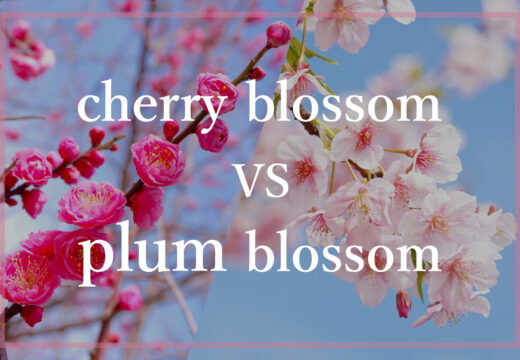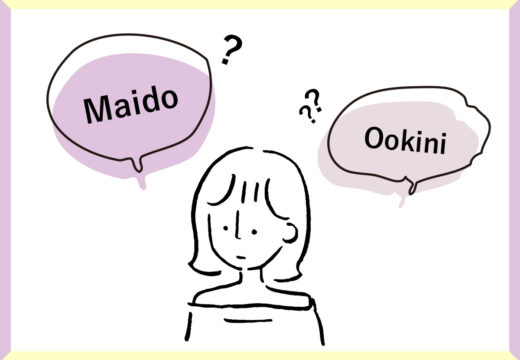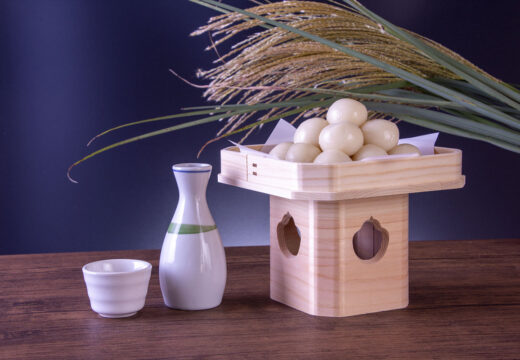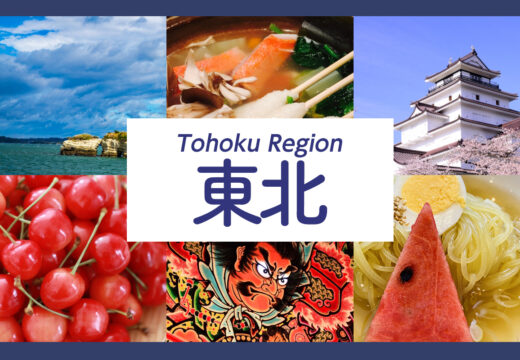Vocabulary for Japanese Natsu Matsuri(Japanese Summer Festivals)
Category: Tips
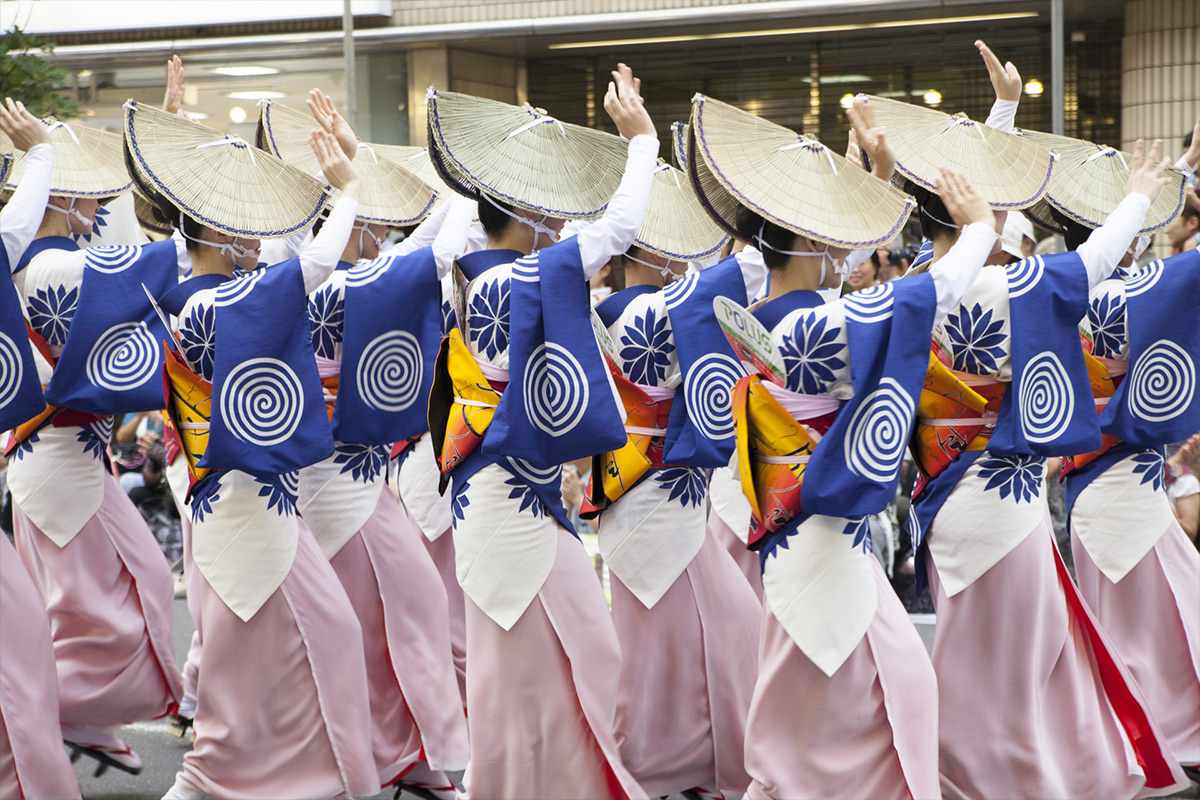
In Japan, festivals are held in various parts of the country in the summer.
Summer festivals are called “Natsu Matsuri(夏祭り)” in Japanese.Natsu means summer and Matsuri means festival.
They range from small local festivals to traditional festivals with long histories.
In this blog, I will pick up some words related to Natsu Matsuri. I wonder how many everyone knows.
Hanabi(花火) – fireworks
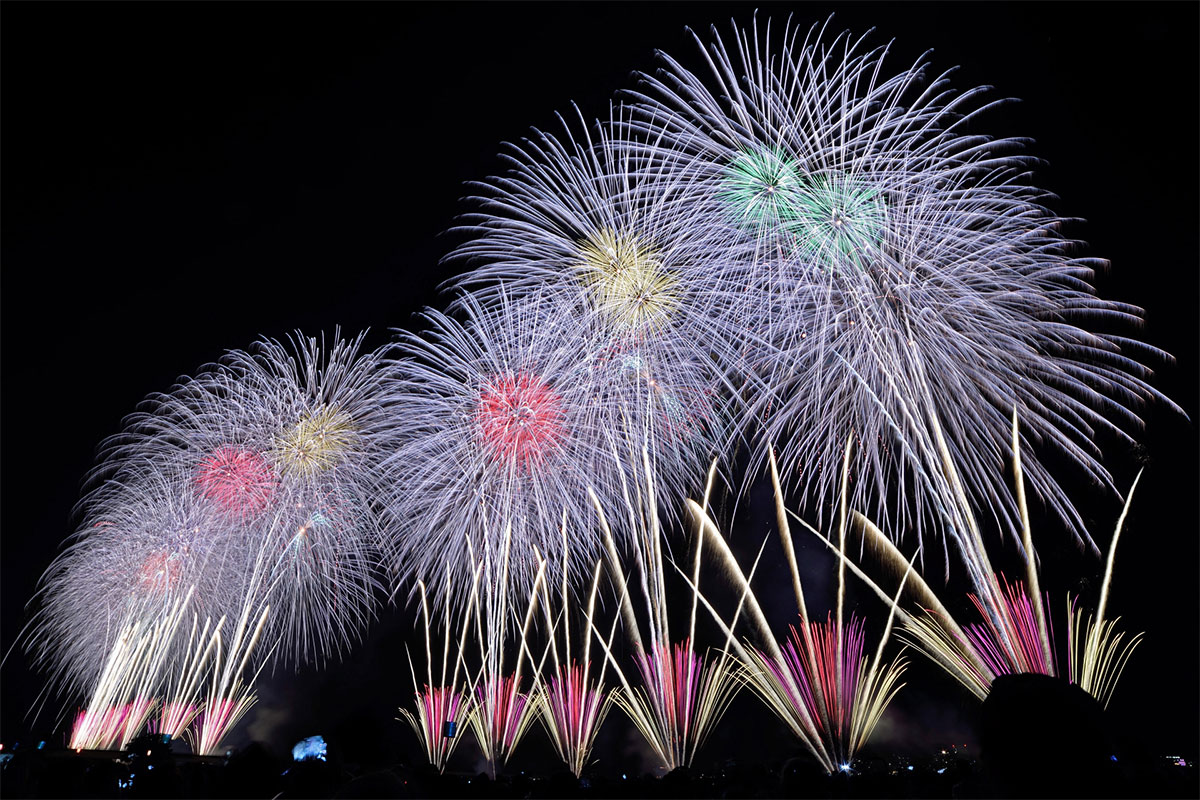
Hanabi is about fireworks, as I mentioned in my old blog.In Japan, fireworks displays are held throughout the country in the summer.
Incidentally, Hanabi is written in kanji as 花火, where 花(hana) means flower and 火(bi) means fire.It means a fire that opens like a flower.
Hanabi was brought to Japan in the 16th century. It was first used as a signal for warfare, but gradually came to be used not only for warfare but also for ornamental purposes.
I looked up the differences between Japanese and foreign Hanabi and found that the fireworks are round, larger and more uniform than foreign Hanabi.There are Hanabi craftsmen in Japan.
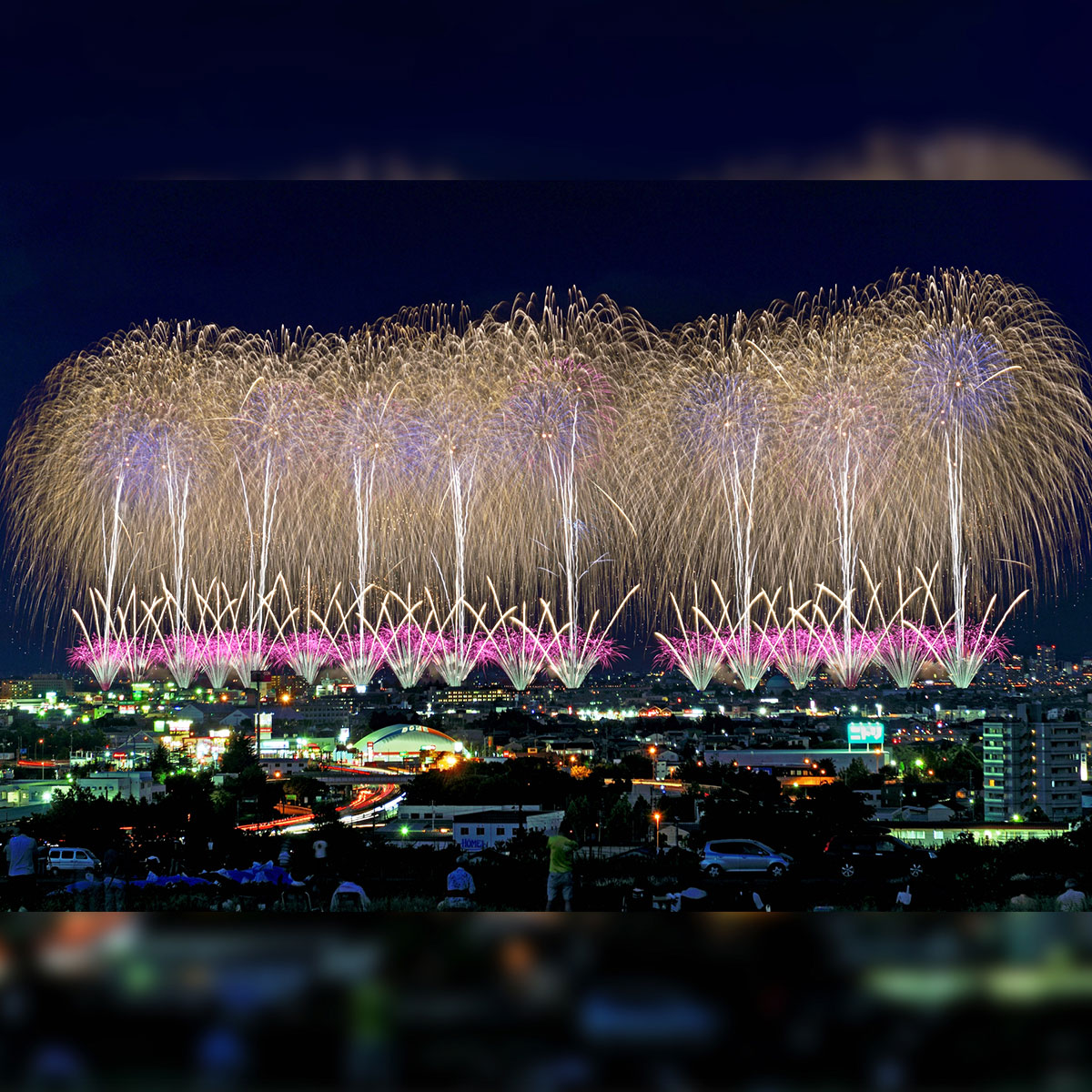
Bon odori(盆踊り) – Bon dance

Everyone dances to the music of flutes, drums, and songs in Bon Odori.Basically, there is a stage in the middle and everyone dances around it.
Basically, anyone can participate in Bon Odori. However, there are some little manners, so check out the blog below.
The three major Bon Odori dances in Japan are Nishimonai Bon Odori in Akita, Gujo Odori in Gifu, and Awa Odori in Tokushima.
Nishimonai Bon Odori
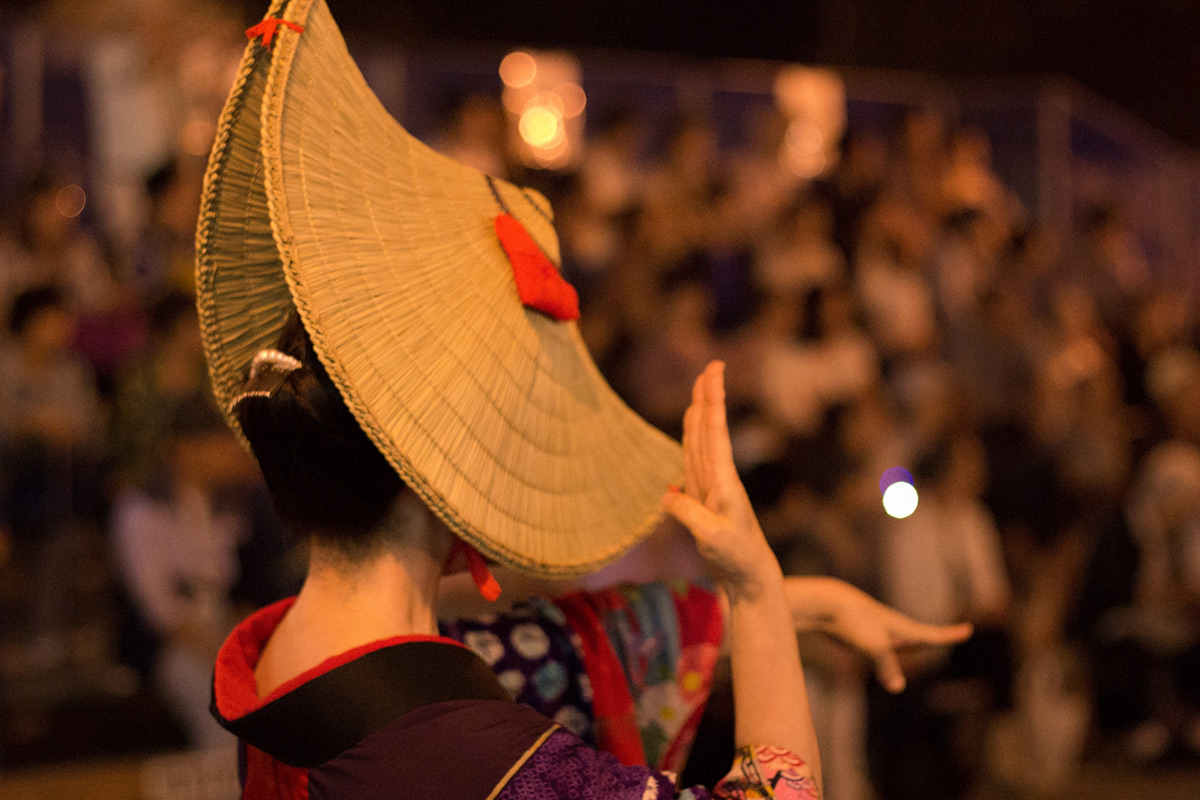
The Bon Odori of Nishimonai is danced by dancers dressed as ghosts, with the center of the dance area used for processing.The dancers’ attire is distinctive. They wear large half-moon shaped braided hats.The face is hidden, they say, to represent the dead.
Gujo Odori
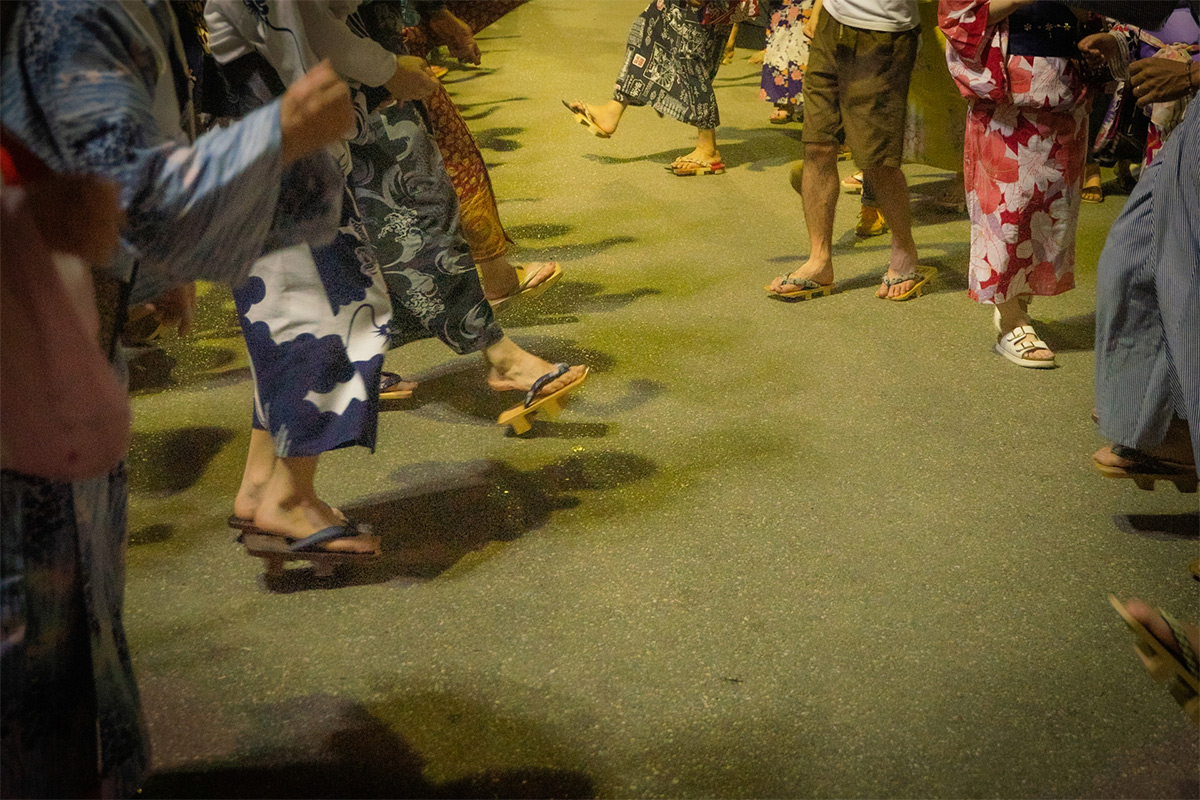
Gujo odori in Gifu Prefecture has a 400-year history. It was also registered as a UNESCO Intangible Cultural Heritage in 2022.
In the past, the lord of the castle encouraged the people of the village to dance four days in the summer with no disrespect to anyone regardless of status, and the dance became popular every year.
Gujo odori is danced in a circle, regardless of whether they are townspeople or tourists. It is not a dance to be “watched,” but to be “danced” together.
Awa odori

Awa Odori is also a Bon odori with a 400-year history.
Held annually from August 12 to 15, numerous groups line up to perform a breathtaking dance.Awa odori is based on a less complicated dance style. There is “Otoko odori” (otoko means man), which is danced by a man, and “Onna odori” (onna means woman), which is danced by a woman.
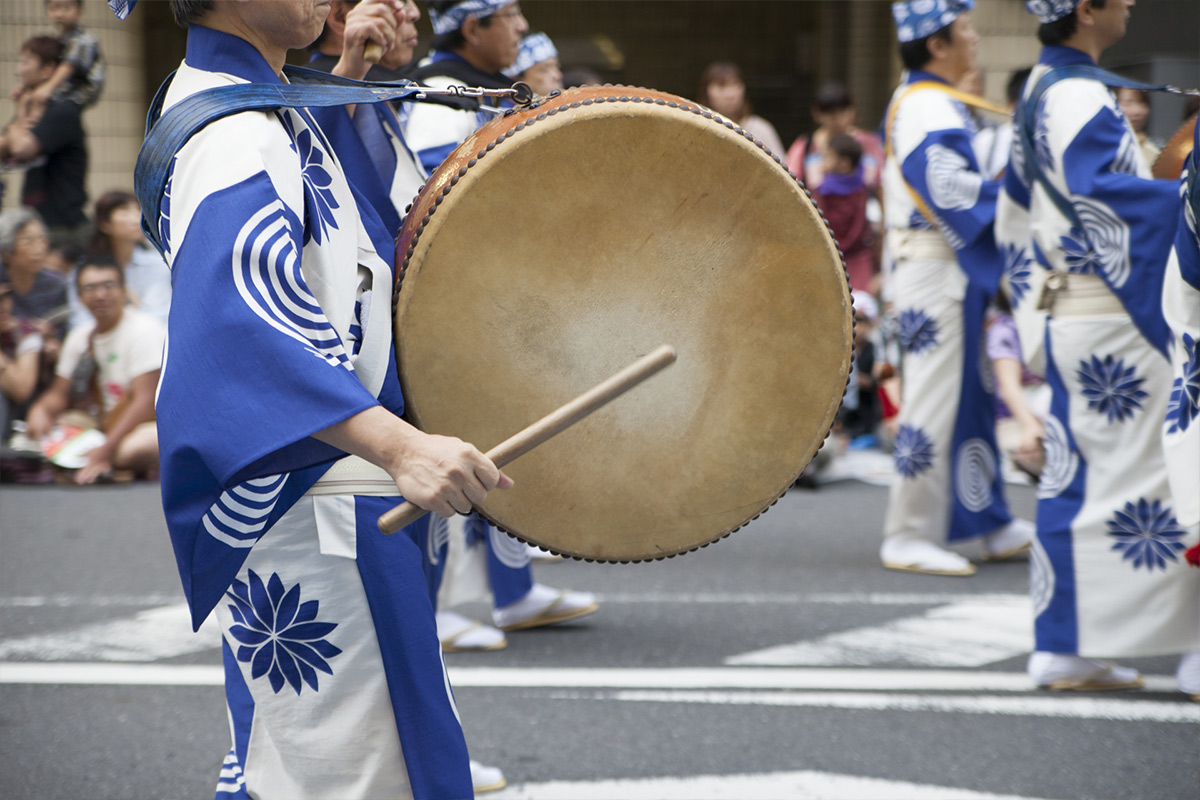
Live instrumental music is also a must-see.
Yatai(屋台)
Now, an essential part of the festival is “Yatai”.
Yatai means stall.There are food stalls and stalls where you can play games.
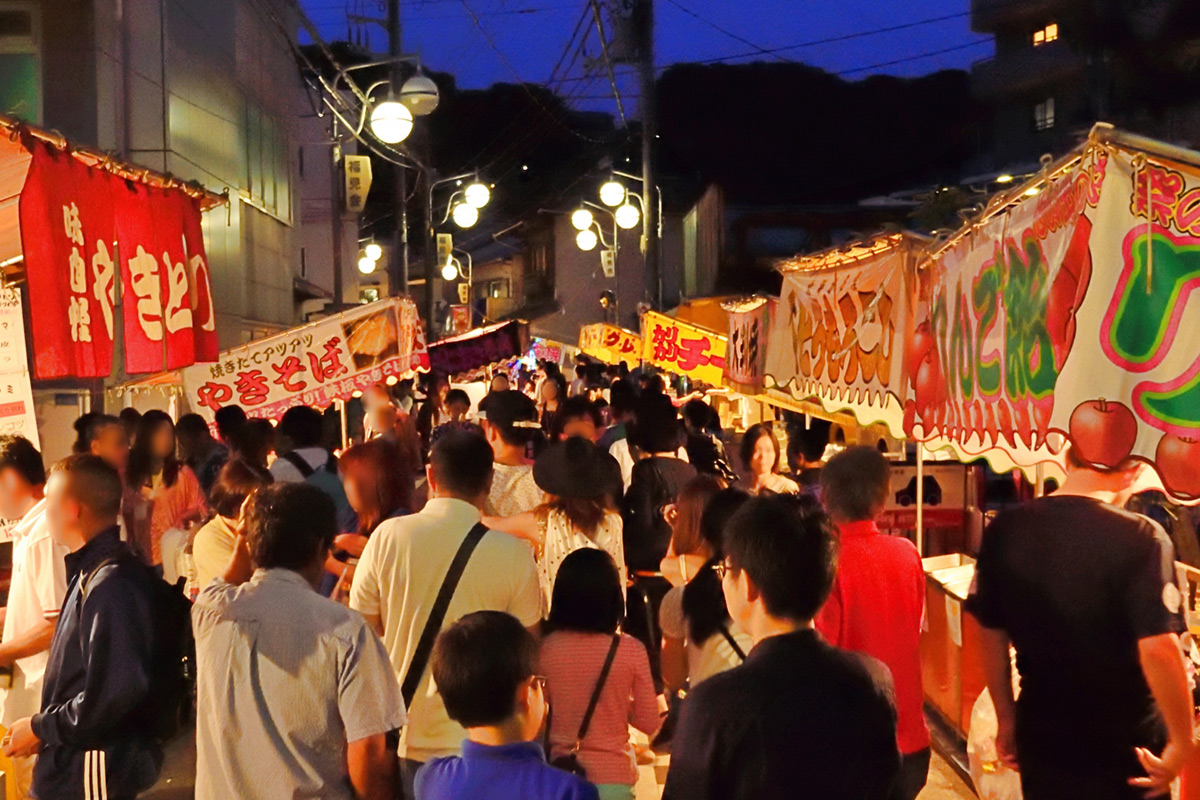
Here are some of the types of food and stores commonly found in Matsuri’s Yatai.
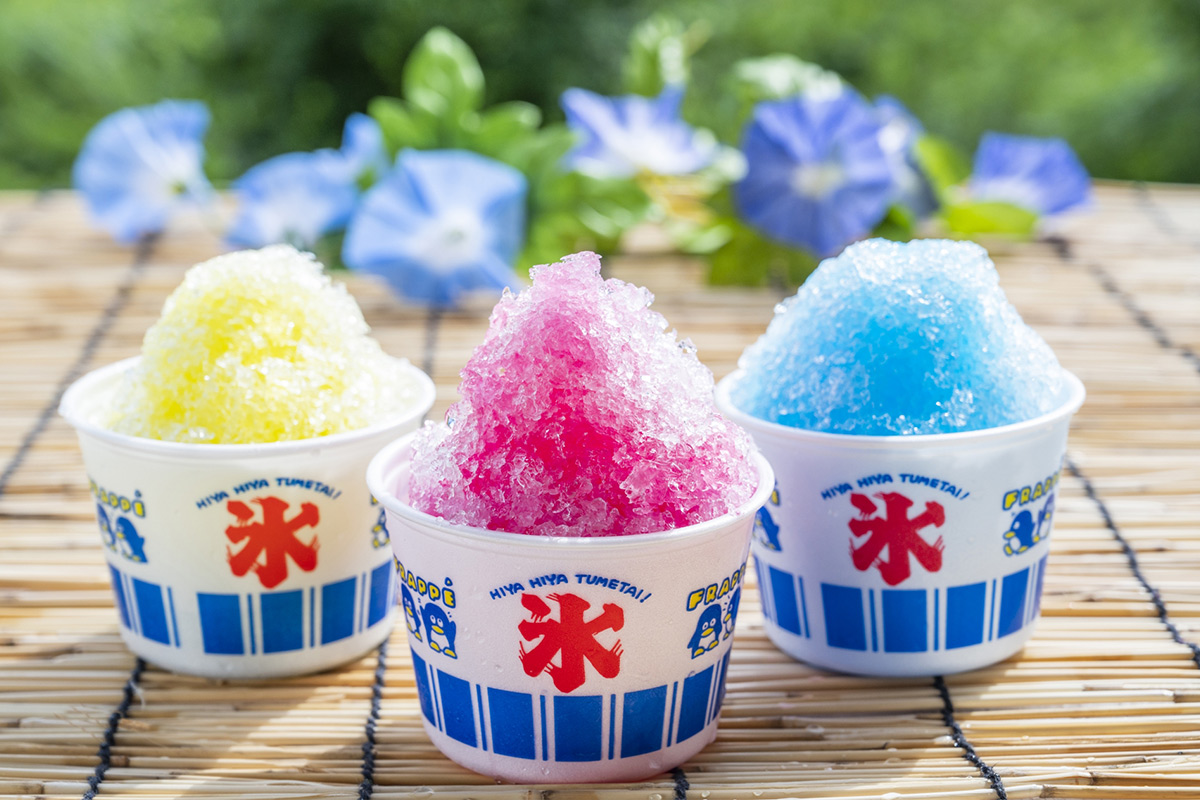
The major one is Kakigori. It is a Japanese shaved ice.Summer is hot, so Kakigori seems to be sold at most summer festivals to cool you down.
Common flavors include strawberry, lemon, and blue Hawaii.The kanji “氷” is a landmark.
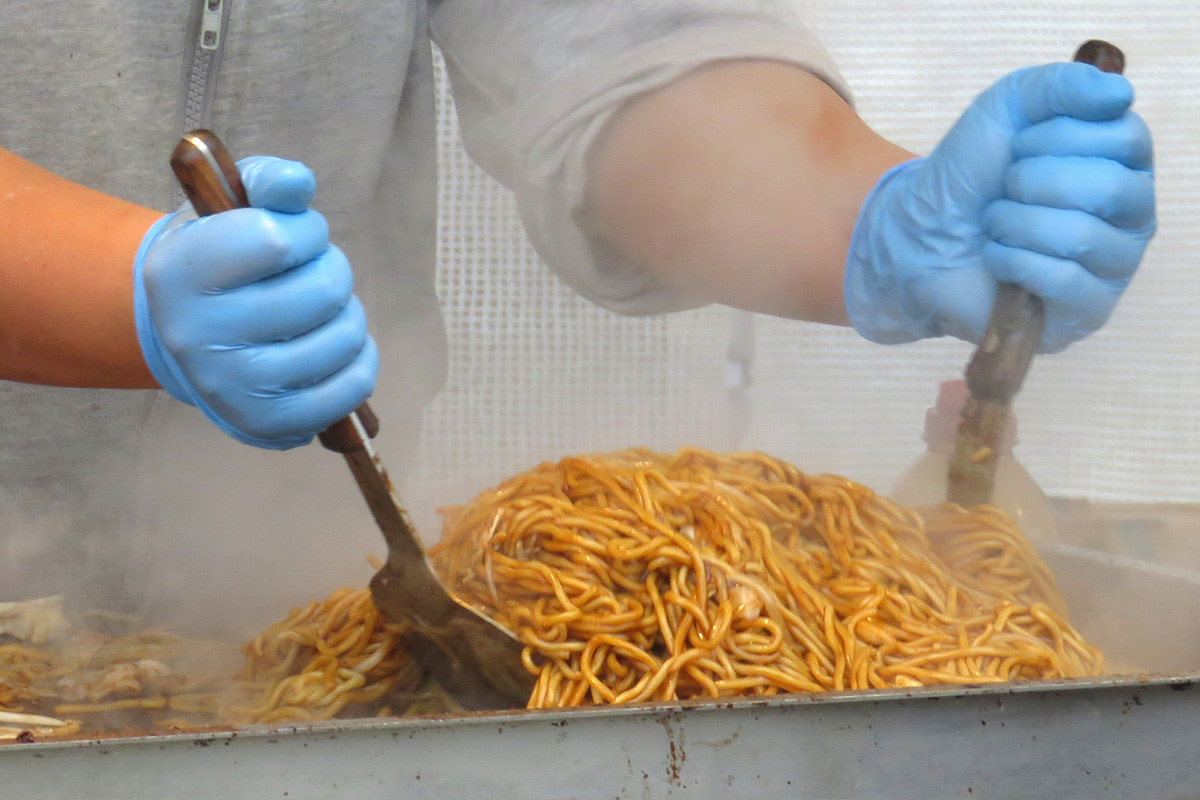
Yakisoba is another classic.Yakisoba is noodles, vegetables, and meat stir-fried in a sweet and spicy sauce.It has a rich flavor and goes well with beer.
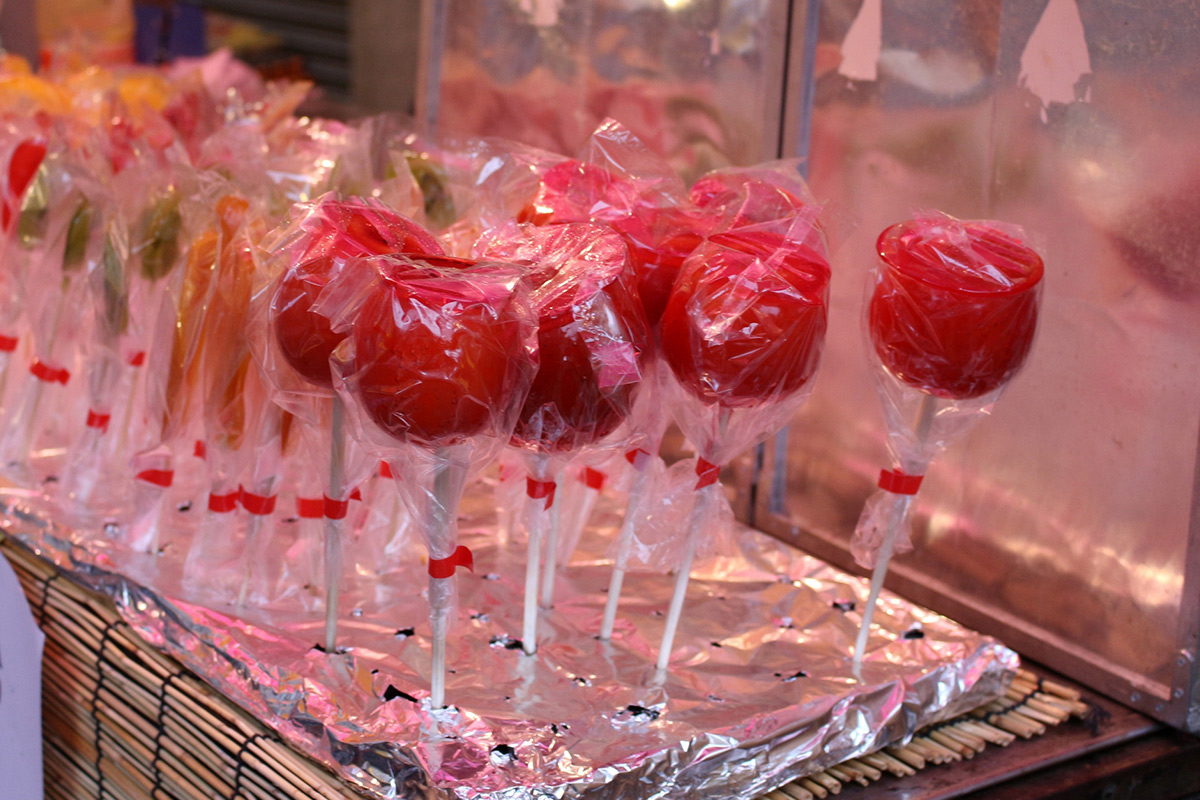
For something a little different, “Ringo Ame”.Ringo means apple and Ame means candy.
It is a candy wrapped with a whole apple.It is sweet, filling, and popular with children.
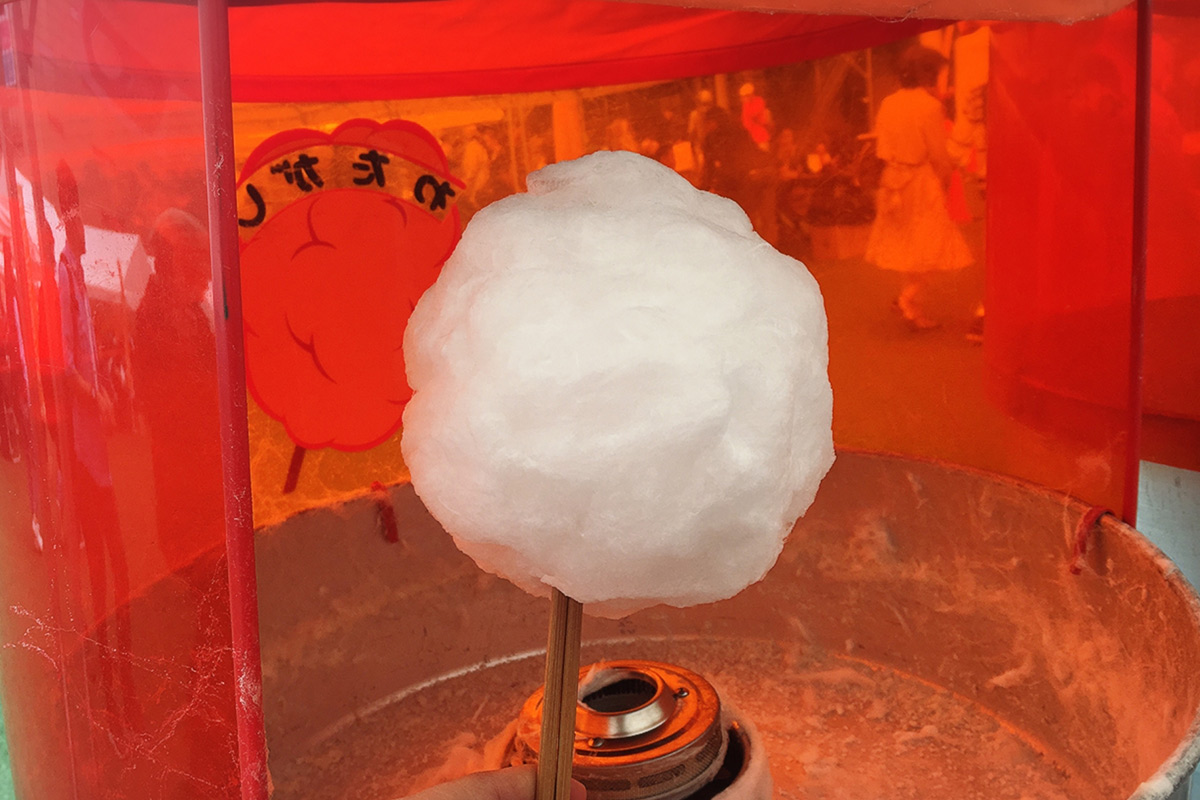
Then there is Wata-Ame, a popular Yatai menu item for children.Cotton candy.
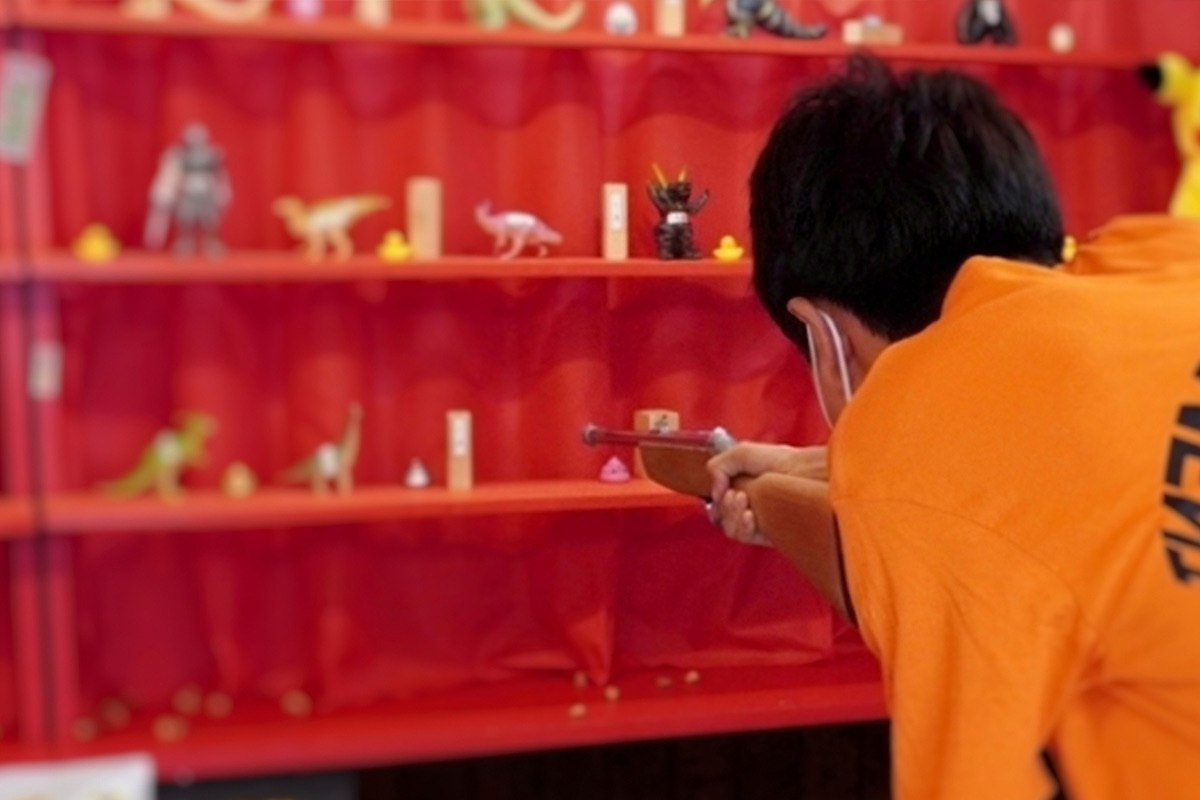
One is target shooting(Shateki in Japanese). You aim a gun at the item you want, and if it falls, you get it.
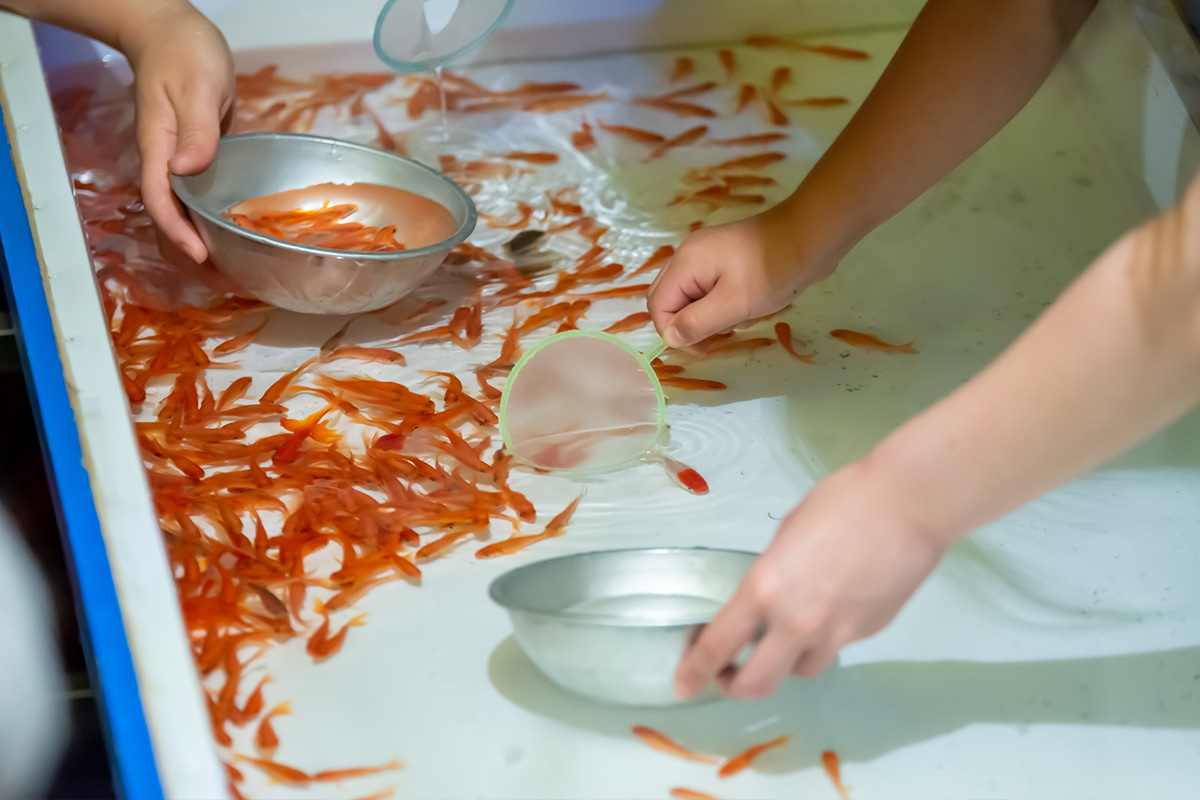
Then, Kingyo sukui(goldfish scooping). This kind of game for living creatures is perhaps not seen in many other countries.
But the game has quite a history.Some Japanese paintings from around 1750-1850 depict the Kingyo sukui.
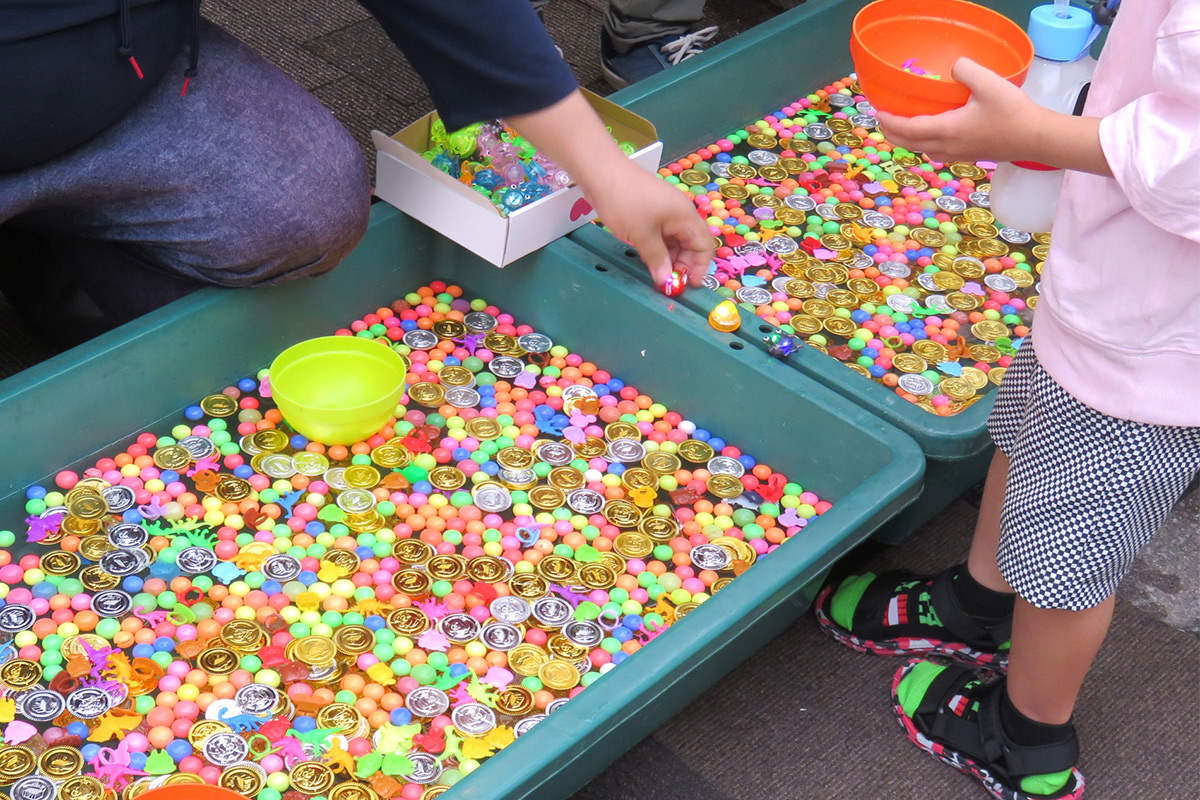
A similar game is called Super Ball sukui(Super Ball Scooping).
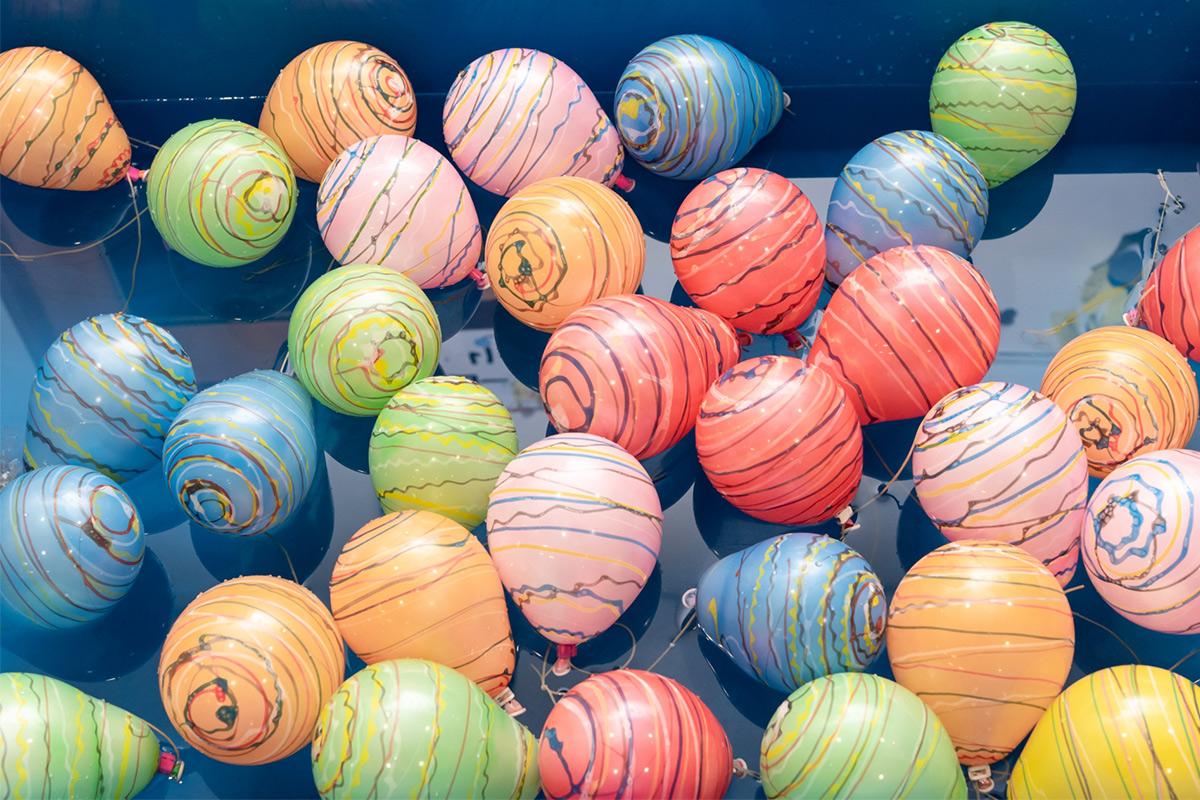
There is also water balloon fishing.Are these water-based games common in the summer because of the heat?
By the way, in most Yatai, cash is almost always used. Please note that credit cards are not accepted!
Enjoy the Japanese Matsuri!
Summer in Japan is really hot, and to be honest, sightseeing during the daytime is quite difficult. However, there are many festivals held at night in various places.
If you come during the summer season, be sure to take a look at these Matsuri and other events such as firework festivals.




